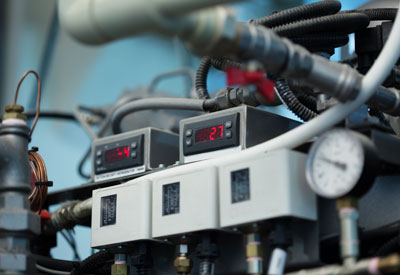Regulatory Information for Dry Cleaners
 There are multiple environmental, health, and safety regulations that dry cleaners must comply with, particularly in regards to perchloroethylene (perc) use. The links below provide information on air and hazardous waste regulations specific to dry cleaners.
There are multiple environmental, health, and safety regulations that dry cleaners must comply with, particularly in regards to perchloroethylene (perc) use. The links below provide information on air and hazardous waste regulations specific to dry cleaners.
Standards
Emission Standards for Dry Cleaning Facilities [PDF 68KB]. The U. S. Environmental Protection Agency (EPA) has standards for the control of perc releases from dry cleaning facilities. This fact sheet, developed by the MPCA, is designed to help you understand these new regulations.
NESHAP (MACT Standard) for Dry Cleaning Equipment. U.S. Environmental Protection Agency (EPA) Code of Federal Regulations for perc air emission standards for dry cleaning facilities.
Testing
MnTAP’s halogen meter is available for loan to test for perc leaks and residuals in your machines. The equipment loan is made free of charge. Contact MnTAP at 612.624.1300. From Greater Minnesota, call 800.247.0015.
Compliance and Clean-up
MPCA, Small Business Environmental Assistance Program. Provides free, non-regulatory environmental assistance to small businesses. The primary focus is on compliance assistance, but the group also offers assistance on minimizing the impact of regulation on small businesses. Resources include NESHAP Log Sheets and Self-Evaluation Checklists.
Low-interest Loans to Reduce Emissions. As of March 3, 2008, thirty-nine dry cleaners have received low-interest loans from the MPCA, Small Business Environmental Assistance Program to purchase water-based cleaning machines or to upgrade their perc machines to reduce emissions.
Drycleaner Fund: Environmental Response and Reimbursement Account. The Minnesota Legislature, working with dry cleaners’ trade associations and the MPCA, established the Drycleaner Environmental Response and Reimbursement Account (Drycleaner Fund) in 1995. It helps pay for the cleanup of soil, ground-water, or surface-water contamination at dry cleaning facilities. Most dry cleaning facilities that provided services to the general public may apply for reimbursement for investigation and cleanup work.